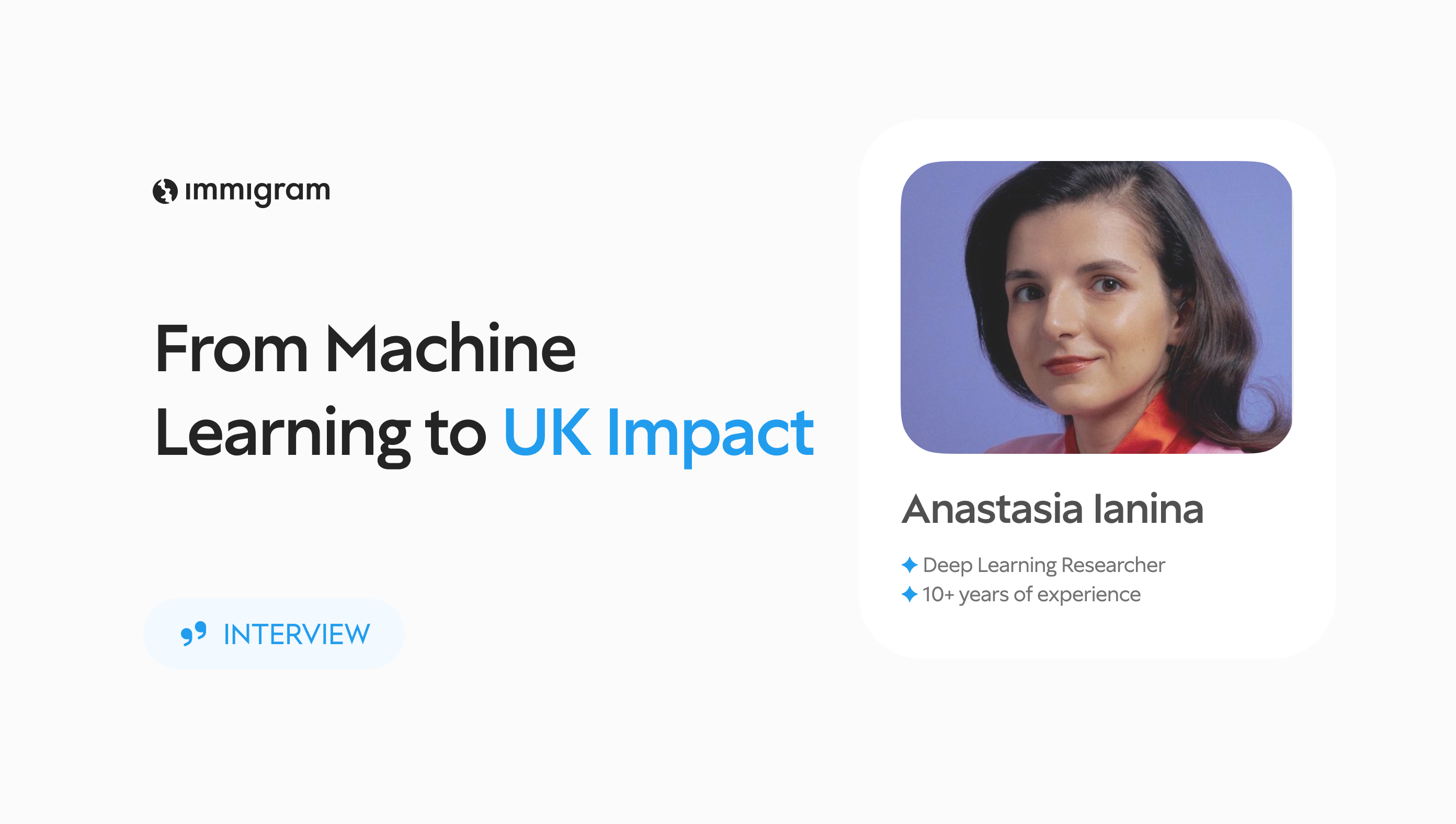
As an engineering student, Anastasia Ianina developed a passion for machine learning, which shaped her scientific interests and career trajectory. Working as a research scientist at renowned companies like Yandex, Samsung, Lyft, and Meta, she contributed to groundbreaking projects in 3D computer vision and natural language processing (NLP). Her work helped her secure a UK Skilled Worker visa, which facilitated her move to the UK. However, she always knew she would switch to the Global Talent visa. Now that she has made the switch, she shares her experience and future plans in this interview.
I began my studies at MIPT in 2012 and joined the Yandex School of Data Analysis (YSDA) in parallel. There, I discovered my passion for machine learning and research, and began collaborating with my scientific advisor, K.V. Vorontsov. After YSDA, I worked as an analyst at Yandex but soon shifted to academic research. I’ve held research positions at companies and startups in Russia, the UK, Germany, and the US, including Yandex, Samsung, Gigster, T-Bank, Wildberries, Lyft, and Meta. Now, I focus on research, supervise students, write papers, and teach.
I earned my Ph.D. in Computer Science in 2022. With a Hirsch index of 10, I have published over 20 papers in top-tier conferences and journals in AI and machine learning. I teach machine learning in Russia, Spain, the UK, and Thailand, and I am the author of two books and three online courses on the subject. In 2020, I was awarded the Yandex ML Prize for young scientists. Additionally, I serve as a reviewer for prominent AI, machine learning, and computer vision conferences, including CVPR, WACV, ECCV, and ICCV.
A solid education (MIPT, Yandex School of Data Analysis) and being surrounded by the "right" people—a group of motivated, smart individuals—have been crucial. First, it was my classmates, then my colleagues at Yandex, Samsung, Meta and others, and later, fellow educators with whom I co-developed a machine learning course program. Of course, my ability to work hard and persist, even when things don’t work out on the first, second, or third attempt, has also played a major role.
I chose the Skilled Worker visa because my employer covered all the expenses and took care of the paperwork for me. At the time, I was too lazy to gather the documents for a GTV, which in hindsight was a mistake—I should have just done everything properly from the start. I knew that sooner or later I would switch to a GTV, but I kept postponing it because I really didn’t want to deal with writing all those documents and cover letters.
Not at all, I was well aware of the criteria and the application process because many of my friends had already received the GTV. I would say that in my circle, nearly everyone who moved to the UK did so through the GTV (some first applied for the Skilled Worker visa and later switched to the GTV). However, among my acquaintances, I was the first to receive an endorsement from the Royal Academy of Engineering, while the others received theirs through Tech Nation.
I had to wait a long time (5 weeks) for a response from RAEng. Tech Nation typically responds within 1-3 days.
I plan to continue the same work I was doing before receiving the Global Talent visa. However, I may take some time off to spend more time with my daughter. I also plan to travel more and participate in research and educational projects in different countries, as the RAEng endorsement allows me to be outside the UK for more than 180 days a year, which is advantageous for future ILR eligibility.
Go for it, and don’t be put off by the tedious paperwork. The GTV gives you more flexibility in shaping your career and life plans, as it reduces your reliance on a specific employer when moving. For those who are unsure whether to move to the UK, I’d suggest applying for the GTV as a backup. It gives you the opportunity to live in a fantastic country with a rich culture and mild climate, even if you don’t plan to settle long-term or pursue naturalization.